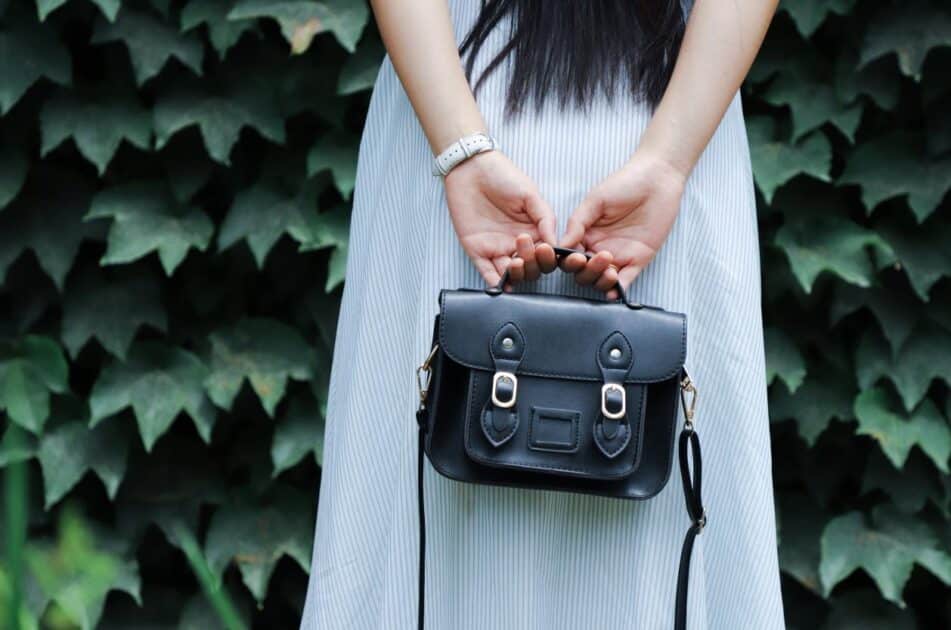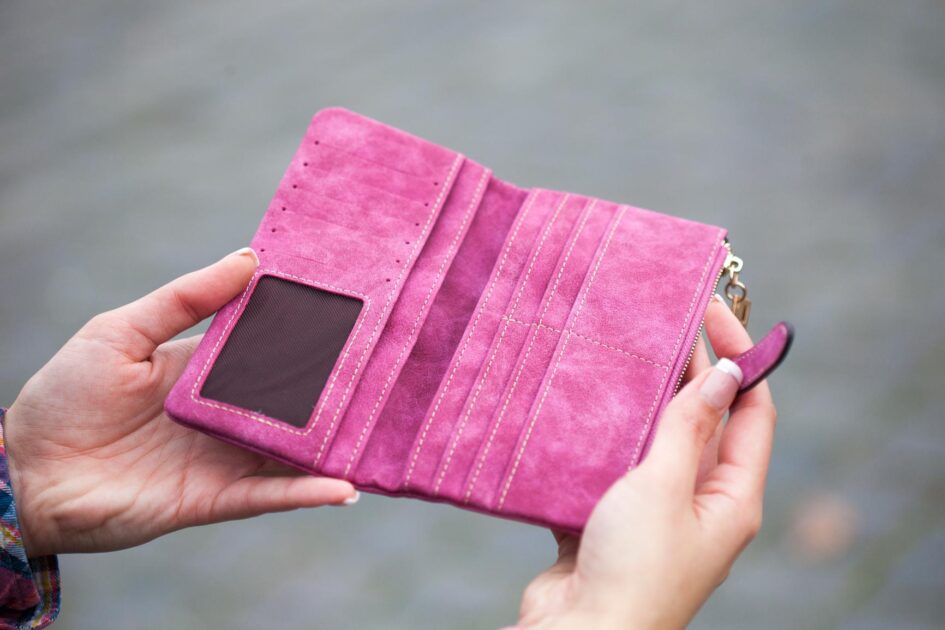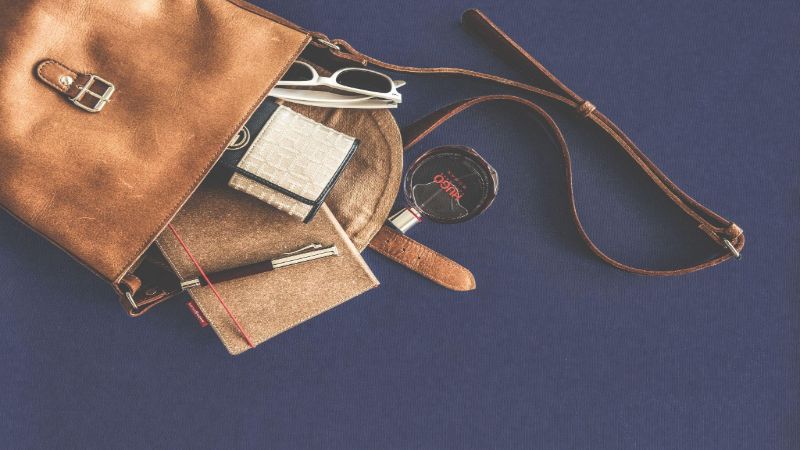Ever been puzzled when you heard someone referred to as a “handbag”? It’s not just you. This quirky term has its own place in the colorful world of slang. But why exactly would you call someone a handbag, and what does it imply about the person in question?

It’s all about context and the relationships between people. A term of endearment for some, a playful jab for others, “handbag” can carry a variety of meanings. Let’s dive into the whimsical use of this accessory-turned-nickname and uncover the stories behind it.
The Origins of “Handbag” as a Slang Term
You might wonder how “handbag” evolved from a fashion accessory to a quirky term for a person. It’s a combination of cultural shifts and language evolution. In the earlier part of the 20th century, handbags were essential for women, often carrying an array of personal items. They became symbolic of a woman’s presence.
World War II shifted social norms, and language stretched to include new terms. “Handbag” became a playful metaphor. Women were seen as inseparable from their purses, so the term humorously transferred to people, signifying they were just as indispensable.
In British culture, “handbagging” garnered attention from Margaret Thatcher, the then-prime minister, known for her assertive style. Reporters coined the phrase to describe her no-nonsense manner of dealing with opponents as if metaphorically hitting them with her handbag. This gave the term a more robust, tougher connotation.
Here’s a quick glance at the term’s transformation:
- Essential accessory for carrying personal items
- Cultural shifts during wartime
- Metaphor for indispensability
- Garnered tough connotations with political use
Pop culture took the term and ran with it. From movies to books, “handbag” was used to depict a character’s closeness or playful camaraderie with another. While it’s sticky and sometimes baffling how language morphs, it’s fascinating to see a simple accessory represent so much more in daily vernacular.
Different Meanings of Calling Someone a Handbag
When you hear someone called a “handbag,” context is key. This term can encompass a range of meanings, each distinct from the other. Let’s explore these varied interpretations.
In the friendliest terms, calling someone your “handbag” could imply that they are inseparable from you, much like a handbag is to its owner. It’s a playful affection, indicating that the person is a close companion you wouldn’t want to do without. They’re your go-to, just as your handbag holds all your essentials.
In workplaces, to call a colleague a “handbag” sometimes points to someone who’s supportive and dependable. Picture your handbag, always there, carrying what you need — that’s this person in a work scenario. They back you up and share the load, metaphorically speaking.
However, if you’re in a confrontation, the term might take on a more combative shade. Reflecting on Margaret Thatcher’s use of her handbag, someone who’s “handbagging” might employ assertive tactics akin to swinging a metaphorical handbag in a political or ideological battle. It’s powerful, it’s commanding, it makes a statement.
In some circles, dubbing someone a “handbag” might hint that they’re merely ornamental; they’re present but may not contribute much substance. This isn’t a flattering use. It hints at a decorative accessory rather than a functional partner.
In more derogatory usage, calling someone a “handbag” might suggest they’re being carried by others, relying heavily on their peers or partners to manage. This interpretation isn’t about steadfast companionship but rather hints at dependence or ineffectiveness.
Navigating the nuances of this term ensures you communicate clearly and with the intended impact. Whether it’s affectionate ribbing or a discreet dig, the way you call someone a “handbag” carries weight. Cultural context, tone, and relationship dynamics all color this versatile term.
Context Matters: Understanding the Relationships
When you’re navigating social contexts, gauging the relationship between the speaker and the person being referred to as “handbag” is crucial. In the fashion industry, where partnerships and alliances are pivotal, the term can denote close collaboration. Think of the dynamic between a designer and their muse. In such relationships, being called a “handbag” could be a testament to the integral role someone plays in the creative process.
Consider a high-pressure scenario during fashion week. Your team’s cohesion is key, and here, a “handbag” might be the person holding everything together. It’s not just about having a shared history—it’s recognizing real-time support and reliability. This person isn’t just an accessory; they’re as essential as the collection hitting the runway.
However, don’t forget the competitive edge of the fashion world. If you hear whispers of someone being labeled a “handbag”, be alert. It could hint at dependency or, worse, a lack of originality. In an industry that prizes innovation, this could be a subtle nudge to step out of the shadows and assert one’s own identity.
Interpersonal dynamics in the fashion industry are complex, with relationships often threaded with both admiration and envy. So when you come across the “handbag” reference, look past the surface. Who’s saying it, and in what circumstance? Could there be underlying respect or an undercurrent of tension? Your insight into these subtleties will shape how you interpret and respond to the label. Always consider the layers of meaning before jumping to conclusions—you’ll find that each situation is unique and requires a tailored response.
The Evolution of Slang and Nicknames
Language is a living entity, always evolving and adapting to the times. In the fashion industry, slang and nicknames are no exception. You’ll see terms come in and out of vogue as quickly as the latest runway styles. “Handbag,” for instance, wasn’t always associated with people.
« How to Clean White Leather Handbag: Pro Tips for a Spotless Accessory
Handbags as Investments: Unlock the Secrets to Their Surprising Value »
Historically, slang develops as a kind of shorthand, serving a dual purpose: to streamline communication and to create a sense of community among insiders. Nicknames, by their nature, become a tool of belonging or separation. They reflect the relationships and hierarchies within the industry.
As you dive deeper into fashion circles, you’ll notice older nicknames fall out of use and new ones rise. These terms often illustrate the collective mindset and prevalent attitudes of the time:
- Collaboration and camaraderie lead to more inclusive, team-oriented nicknames.
- Competition and exclusivity breed nicknames that may isolate or “other.”
In the case of “handbag”, its meaning has shifted alongside the industry’s values. Once a term might have been endearing, over time it could morph into a subtle jab, reflective of the competitive atmosphere.
Fashion is cyclical and so is slang. Watch long enough and you’ll see revivals and reinterpretations of terms that echo past trends. Just as bell-bottoms made their comeback, yesterday’s slang finds new life in today’s lingo.
Understanding this cyclical nature ensures you’re never out of step with the current jargon. Next time someone uses “handbag” or any other term, you’ll have greater insight into what’s truly being communicated. After all, in fashion, every word is part of a larger narrative—whether it’s whispered behind the scenes or declared boldly in the spotlight.
Conclusion
So there you have it, you’re now in the loop with one of the quirkiest terms in fashion lingo. Remember, staying current with the industry’s ever-evolving language is key to navigating its dynamic landscape. Embrace the change, enjoy the camaraderie that comes with these insider expressions, and who knows, maybe you’ll coin the next big term that captures the essence of the moment. Just keep your ears open and your sense of humor ready. After all, today’s ‘handbag’ could be tomorrow’s vintage catchphrase!
Frequently Asked Questions
What is the main focus of the article related to the fashion industry?
The article primarily focuses on the evolution of slang and nicknames within the fashion industry and how they contribute to communication, community, and reflect internal relationships and hierarchies.
Why is understanding the fashion industry’s slang important?
Understanding the slang in the fashion industry is important because it ensures effective communication, fosters community among insiders, and helps individuals stay current with industry trends and jargon.
How does slang in the fashion industry reflect its values and atmosphere?
Slang in the fashion industry can highlight the values of the industry, such as novelty and innovation, and mirror the competitive atmosphere by showing the hierarchies and relationships through specialized language.
What does the changing meaning of the term “handbag” signify in the article?
The changing meaning of “handbag” signifies the evolving values and competitive nature of the fashion industry, indicating how language adapts to the industry’s dynamics and consumer trends.
Can you explain the cyclical nature of fashion and slang mentioned in the article?
The cyclical nature of fashion and slang, as mentioned in the article, suggests that both fashion trends and the jargon used in the industry regularly come in and out of vogue, reflecting the continual reinvention within the fashion world.










